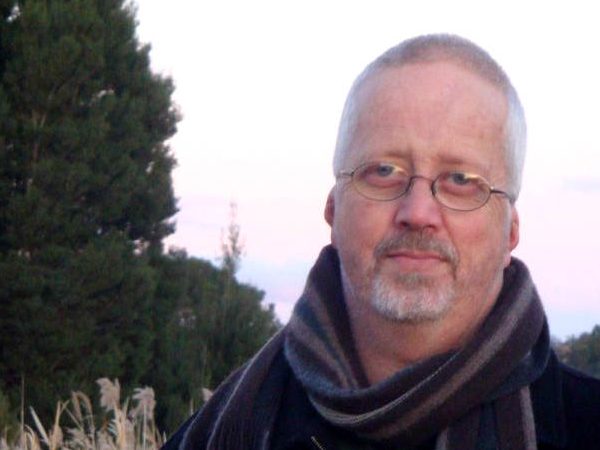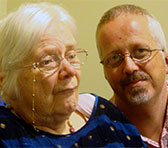
Making Art – Episode 05
Tim Dargaville
Episode Released 8th July 2018
When people ask, as they occasionally have over the past two and a half years, why I haven’t been acting much lately I’ve often replied that I’m “taking a breather”, “regrouping”, “resting and having a think about things”. Which is bollocks. The truth is three years ago I had a massive breakdown. I’d like to say it was a surprise and while at the time I was utterly bewildered by it, few that knew me were, and in retrospect I can see now that it was perhaps one of the slowest moving train wrecks in history. Over some months as I sat in my little room in the institution that I’d checked myself in to I came to realize that what had led me there was the fact that I found so many apparently simple things about life and living completely and utterly baffling. This compelled me to accept that I was 53 and thoroughly clueless.
In recovery, once the acceptances are done, you set about undertaking what appears to be the insurmountable task of unravelling your own life’s puzzle, gingerly stepping out on an often painful, forensic search for Jungian self-knowledge. It’s a journey of discovery which is laden with euphoric “eureka” moments that with time often show themselves instead to be rather comical “duh” moments. It is from these sometimes embarrassing and always humbling experiences that, thankfully, some bigger questions emerge.
One of my “aha” moments in those early days was the realization that despite having been an actor for thirty five years my relationship to my creative practice, such as it was, was perfectly bereft. I just didn’t know what it was all about. I’m grateful that I can say that particular insight has led me to a more interesting line of enquiry, namely “Do I really want to do it again?” And to answer that particular question any creative must ask themselves another more important one. Why?
It’s confronting and tricky but sometimes you just need to have your eyes open and trust that fate will put someone or something in your path that will help you find an answer.
And I met that someone the other day. Composer Tim Dargaville is of a similar vintage and as I listened to him talk about his life and work I got the impression that it’s a question he’s been quietly asking himself for a long time, one that has offered up a series of seemingly disparate clues delivered in unexpected moments. And those moments, along with the passing of time appear, at least from where I was sitting, to be honing the answer, each moment, each day making it clearer and simpler.
“One of the things you understand better, or at least it has been for me. Is that as you get older and your view of your place in the world changes your practice changes quite dramatically. I can see works in my catalogue from the past that are me going ‘Hi. I’m here’. And you should expect that. When you’re young you’re trying to cook up recipes that have all manner of things in them that will attract people quickly. But as I get older I find I have dispensed with a lot of that and I’m much more interested in ordinary things but trying to express those ordinary things with a poetic sensibility. Ordinary things that are particular to me and the way I see things in the world. ”
Perhaps one of the first of those seminal moments that shaped Tim’s creative practice and remains something of a creative foundation stone was the day when, as a teenager, he became aware that music had the power to render people speechless. He arrived home and on entering the kitchen found his mother, who was convalescing after an illness, alone, seated in a chair, listening to a recording of Elgar’s Cello Concerto with tears streaming down her face.
“I was worried of course and I started to ask her questions and she just kind of put her hand up, you know ‘Don’t talk’. So I just sat with her and we listened to the whole side of the LP like that, just sitting like that. By the time we got to the end of the album I didn’t bother to ask any more questions. ‘No you don’t need to talk about what’s just happened there. It just is’. I saw that it was speaking to her in such a profound way and I realised you can really, really love a piece of music. You can love it so much ‘cause it’s so fucking amazing that you can be not able to talk.”
It’s that experience of sitting and listening together that is becoming more of a theme in his creative practice as he gets older. It suits his personality type far better than the making of statements and yet in a way it is a statement. A statement about one of the simple tasks that music can perform. It can stop us from talking and ask us to listen. Something that we don’t do very well as a society.
“We seldom get the opportunity to suspend our inner monologue. We are complex beings and yet we seem to think the only way we can share that complexity is by talking about it. We devalue listening without being aware were doing it. How often do you get to sit with a bunch of people and just listen? It’s a rare and precious environment. That is a dimension to the musical experience I’m interested in as a writer of music. Allowing people to bring of themselves into this other world where you remove a shared language and they are not directed to think in a particular way. Then there’s a neutrality and people can sit with themselves in acts of contemplation in public.”
The place the work comes from now is quite different to the place where he started. As a young composer Tim was trained in the great western tradition of ‘Making a Statement’, drilled in the heroic myth that artists are special, the same myth flogged by the internet and the popular press and to a certain extent government policy that implies that if you aren’t extraordinary, quickly, then you aren’t an artist of value. It was a myth that didn’t really sit well with him although he did enter into a pact with himself in those early days that he wasn’t going to make work unless he got paid for it. And he sees it as a good thing to have done. “I had to compartmentalize my thinking but it kind of worked for me. It meant I could just put one foot in front of the other. And it meant I’ve been able to have a career.”
However the economic realities of the creative world in Australia meant he had to give up his ambition for larger scale works, some of which got started, almost completed. Compositions that were written and performed in sections but have never been realized as the bigger works they were imagined to be. And creative work always has a time and place, a limit on when it’s “right.” So he has had to be pragmatic and move on.
“You can’t hang on to that ambition against the economic paradigm. You just get frustrated, disappointed, it can affect your mental health and then you give up and I didn’t want to give up. But those things, those pieces they sit there and they keep coming back.”
Slowly over time, as he became more established and cleared the sooty residue of a philosophy of creative practice which he never really shared he emerged more able to see where his interest had probably always lay and increasingly focused on the detail around him in everyday life.
“I began to realize that a really profound and poetic artistic statement might take years of social observation, social activity. There’s a flow there, a connectedness that you can’t get if you spend your time being ‘special’. And we can all do it, connect and creatively express ourselves in our own way. But we live in a society that carves that whole idea off and says “they’re the creatives over there” who disconnect or are disconnected and then there’s everybody else. Creativity, for me at least, isn’t separate in that way. I’ve come to realize that you have to be open to experiences that happen and that don’t necessarily sit with what you or they think you should be doing.”

That notion of connectedness to what was around him became clear when with his wife Rosalie, Tim spent several months working with a theatre company in Pondicherry in Southern India. While they were there the couples then 12 year old daughter Ruby began learning to make kolam, delicate Southern Indian mandalas, from the local domestic servants. “And she would spend her days learning off the local women and I thought how amazing. Watching her do that. Without language. Just signs and laughter. And the kolam were beautiful and I began to wonder if I could somehow represent them sonically”
What resulted was a ten year cycle of works based on Kolam, works that manage to express the vivacity of the designs while at the same time somehow hauntingly capture their temporality. And it was all down to seeing what was around him although “I wonder if I would have noticed that or had that connection if Ruby hadn’t been there.”
And that connectedness to his own life and that of his family continues to become a more powerful influence on his creative practice.
“The last couple of works are about my parents. And not with the direct intention of doing so. But over time certain richer understandings emerge. And that’s the great thing about having a creative practice. You can reveal yourself to yourself without intending to. We all of us have that capacity in some way or another but we don’t really embrace that.”

The Lost Pages from the Book of Memory and Forgetting, a work for string quartet was premiered in Sydney last week is a piece that has been 10 years in the making, bits of music and idea’s floating around waiting for the time to coalesce, written in response to another of those seminal momenmts;his mother’s experience with dementia.
Tim describes his mother Rosemary as a feisty, articulate, loving and compassionate woman, a social worker for whom language was used to convey ideas and feelings and who travelled through dementia over a period of seven or eight years. And he, along with his siblings, chose to be with her through it all. “It was very confronting to watch. But I didn’t not want to be there. This was more of the great learning from a parent. Teaching me that one of the key things that can happen to you is you dissolve.”
First her language disappeared. “Sentences wouldn’t fit together, two sentences would get jammed together and she’d look at herself as if to go ‘did I just do that?” Then it became just sounds. And as her language slowly vanished, so did Rosemary. “I used to think I know you’re there. I’d say it to her. I know you’re there.”
Rosemary passed before Tim got the work put together. “There were times when I wondered, how am I going to make sense of all this? And not knowing how to do it, and not being ready to either embrace what was happening to my mum or what was happening to me personally and creatively. When I think of those years they were just so stretched.”
At the premier of The Lost Pages from the Book of Memory and Forgetting in Sydney last Wednesday the work did exactly what Tim hoped it would do. People sat and they listened together. And then they talked. About life, their shared experiences of dealing with dementia. “I would like to make music that benefits. Music that explores the uncharted place that words alone can’t take us to. And that’s what happened. The music was doing what I wanted it to do. Be a container for people to reflect on their experiences.”
On Tuesday the 10th of July Tim’s latest work After and Before, a piece inspired by his late father Doug, premieres at the Melbourne Recital Centre.
“I knew these pieces had to be made. Not because there was money in it. Not for any economic imperative but because I just had to. We wonder why artists keep going and doing things for nothing. It’s not just some crazy idea. We all of us in society feel altruism. We all want to give back. Just artists I guess feel it more acutely. I’m an ordinary guy who has a beautiful daughter and I live in North Fitzroy and I work and I’m getting old. My parents aren’t here anymore but I still think of them every day. These things we all share. That’s where I belong.”
And I think I might know the answer to my question.
Links
Below you can find links to further reading in reference to the interview.

